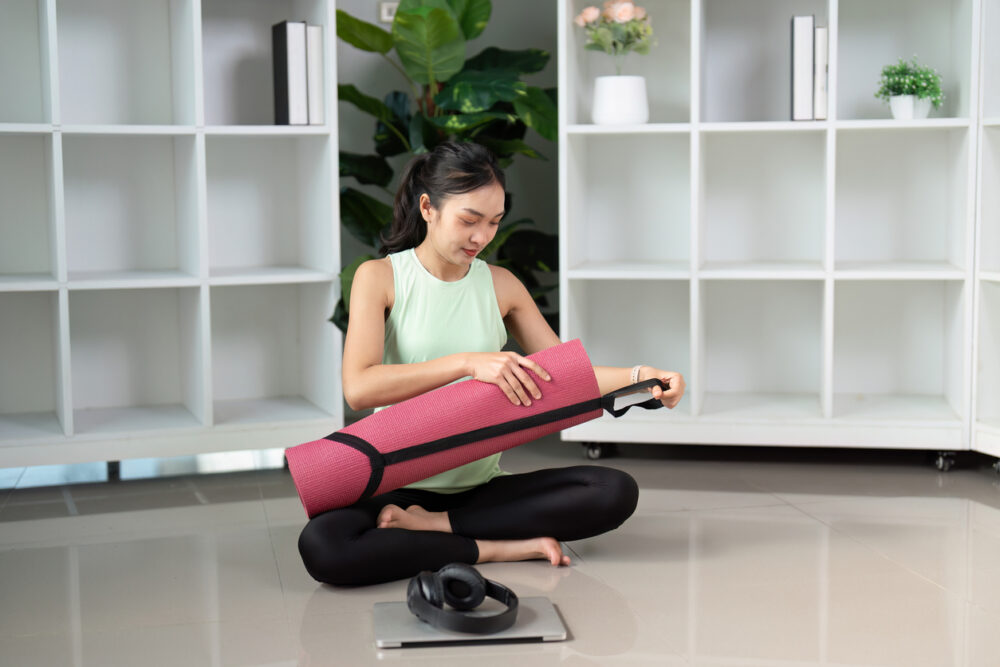Some meditation myths sound wise but secretly slow you down.

There’s no shortage of advice floating around about how meditation can make you a better leader, sharper thinker, or calm powerhouse under pressure. It’s all over self-help books, podcasts, and morning routines of so-called “high performers.” And while there’s truth to the power of mindfulness, not everything you hear about meditation is rooted in reality. A lot of it is hype—well-meaning but misleading mantras that can actually hold you back instead of lifting you up.
If you’ve ever felt like you’re doing it “wrong,” or you’re not reaping magical clarity after a few silent breaths, you’re not alone. The world has turned meditation into a buzzword, selling oversimplified promises and generic prescriptions. The truth is more complicated, and sometimes more empowering. These seven common lies about meditation may be subtly sabotaging your growth, making you feel stuck, or pressuring you to meet unrealistic expectations. Once you strip away the fluff and get honest about what works, you can start building a practice that actually supports your climb, not just your Instagram feed.
1. You have to clear your mind completely to do it right.

One of the most damaging myths is the idea that a successful meditation session means having zero thoughts, according to Joni Sweet at Forbes. That’s not how the human mind works. Thoughts will pop in—annoying ones, random ones, sometimes brilliant ones. Trying to force your brain into a blank slate only adds frustration and creates a false sense of failure.
Meditation isn’t about silencing your brain like a remote control. It’s about noticing the thoughts without grabbing onto them. Let them come and go like background noise. The win isn’t a quiet mind—it’s learning not to react to the noise. The people who benefit the most aren’t the ones with mental stillness, but the ones who build mental flexibility.
2. You need a specific app, music, or setup to meditate correctly.

The booming meditation industry wants you to believe that a subscription, fancy cushion, or curated playlist is the key to real progress, as reported by Melissa Eisler at Mindful Minutes. But the truth is, you don’t need bells, whistles, or binaural beats. You don’t even need silence. You just need attention and a few uninterrupted minutes.
Meditation is a practice, not a product. The quieter benefits happen when you learn to drop into the moment wherever you are—in a car, on a walk, in line at the store. When you rely too much on tools, you risk becoming dependent on them instead of building the skill itself. The best meditators can sit in a chaotic room and still find their breath.
3. You should always feel calm or peaceful after meditating.

A lot of people try meditation expecting to come out of it glowing, centered, and blissful. But sometimes, you’ll feel agitated, emotional, or even more stressed than when you started, as stated by the authors at Headspace. That’s not a failure—it’s feedback. Meditation doesn’t remove emotion; it makes space to notice what’s already there.
If you surface old pain, anxiety, or tension while meditating, it means your practice is actually working. It’s letting you confront what’s under the surface. Emotional discomfort is part of the process, not a detour. Growth happens when you sit with it, not when you judge your session by how calm it left you feeling.
4. Meditation is only for quiet, introverted, or “zen” people.

There’s a stereotype that meditation is best suited for monks, yogis, or quiet types who already seem calm to begin with. But some of the most intense, driven people are the ones who benefit most. Entrepreneurs, creatives, and Type-A go-getters need a pause button just as badly—if not more.
You don’t need to be soft-spoken or spiritual to sit still and pay attention. In fact, if your brain runs fast and your energy feels chaotic, meditation can be the tool that brings everything into alignment. It’s not about changing your personality—it’s about channeling your intensity in ways that don’t burn you out.
5. You need to meditate for 20+ minutes every day or it won’t work.

Consistency is key in any habit, but perfection isn’t required. Thinking you need a long session every single day is one of the biggest barriers to sticking with it. Meditation doesn’t have to be time-consuming. Five focused minutes can be more effective than twenty distracted ones.
What matters most is showing up—even for a moment. A few deep breaths between tasks or two quiet minutes before a meeting counts. The goal isn’t clocking hours; it’s building the habit of presence. Once you stop obsessing over how long or often you meditate, you’re more likely to do it at all.
6. If it’s uncomfortable, you’re doing it wrong.

People often assume that discomfort—physical or mental—means they’ve messed something up. But learning to sit with discomfort is actually the point. Meditation teaches you to face boredom, restlessness, even pain, without immediately reacting or running away.
Sore legs, a racing mind, or the urge to check your phone aren’t signs of failure. They’re opportunities. The ability to observe them without judgment is where the growth lives. Discomfort isn’t a bug in the system—it’s the whole lesson. Avoid it, and you’re avoiding the part of the practice that actually reshapes you.
7. Meditation will fix your problems if you just do it enough.

Meditation isn’t a magic wand. It won’t erase trauma, solve financial stress, or undo years of unhealthy patterns on its own. Believing it will only sets you up for disappointment or self-blame when results don’t come fast. It’s a powerful tool, but not a one-stop solution.
What it can do is build the internal strength to face your problems head-on. It gives you space between reaction and response. It sharpens your awareness and helps you stop repeating unconscious patterns. But it still takes action, therapy, community, and effort to make real change. Meditation supports the climb—it doesn’t carry you to the top.
8. You need to sit in perfect silence and stillness for it to count.

Many people believe meditation must look a certain way—sitting cross-legged, eyes closed, back straight, in a quiet room. But that image is more about aesthetics than effectiveness. Stillness can help, sure, but movement can be just as powerful. Some people meditate best while walking, stretching, or even washing dishes.
The truth is, meditation isn’t about posture—it’s about presence. You can practice awareness in a parked car, a noisy subway, or standing in your kitchen. Trying to force a “perfect” setup can actually be a barrier, making the habit feel inaccessible or rigid. The more flexible your idea of meditation becomes, the more often you’ll find moments to actually practice it.
9. You’re not “spiritual” enough to meditate seriously.

Some folks avoid meditation altogether because they think it’s tied to religion or spirituality, and they don’t identify with either. But meditation doesn’t require you to believe in anything—it just asks you to observe. You don’t need incense, mantras, or chakras to pay attention to your breath or your thoughts.
Mindfulness is a human experience, not a religious one. If you’re skeptical or more logic-driven, meditation can still offer mental clarity, emotional resilience, and improved focus. It doesn’t ask for your faith—it only asks for your willingness to notice what’s happening inside you without running from it.
10. Meditation is only for your mental health, not your ambition.

A lot of people assume meditation is a retreat, a tool for unwinding and nothing more. But for driven, ambitious people, it’s actually a high-performance hack. It sharpens decision-making, improves creativity, and builds emotional regulation—skills that directly impact your ability to lead, grow, and innovate.
Quieting the mental noise isn’t about zoning out. It’s about tuning in to what actually matters and blocking out distractions. Meditation gives you an edge not by slowing you down, but by making your attention razor sharp. It helps you act with clarity instead of impulse, which is what separates those who just hustle from those who win with purpose.
